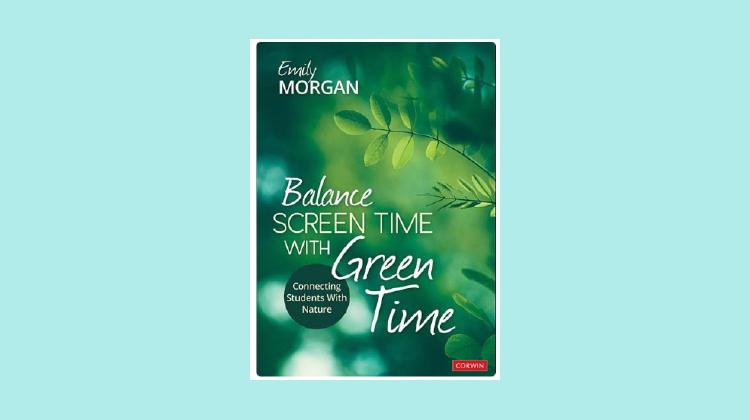‘Balance Screen Time With Green Time’ by Emily Morgan

In education, teachers and school administrators are constantly pressured to achieve balances in the teaching programs being presented, but the concept of balance is terribly subjective, and consensus is often difficult. However, there is now a body of knowledge that is showing that children are suffering ecoanxiety, and clearly schools need to address this issue sensibly.
The timely publication of Emily Morgan’s book titled 'Balance Screen Time with Green Time' is a great starting place to address two pressing issues:
• The amount of screen time to which youngsters are exposed; and
• The need to address green issues in an engaging manner, within the teaching program.
For many years I worked in an Indigenous community, and a ritual that the people practised when they re-entered a riverine environment was to take a mouthful of water, and spit it out, and then saying in Yinjibarndi - “I belong to this country”. That defined the people’s relationship with the spiritual and practical aspects of the Pilbara environment, and it defined everyone’s place in nature. Unfortunately, in modern, industrial, urban societies people have a different, often detached, view of nature and the natural environment, which is why Green Time is now so important.
This is an outstanding book, and readers of Emily’s book will love the 25 Green Breaks that she advocates, in which teachers and schools are guided with an easy way to reconnect with green issues. The colourfully presented book takes teachers and students through activities such as Adopt a tree; Meet your birds; Write a syntu (five-line Japanese poem); Leaf rubbing; and Plant something and watch it grow. What was likeable was that the program is easy to organise, it is enjoyable, and it is almost cost-free. Green Time is a real “getting back to basics experience for students”.
“Screen time” is problematic, but schools have this matter in-hand. Just out of interest, Jessica Mudditt (2022) writing for the BBC in England linked the early exposure of children to screens being responsible for the rise in myopia, and Singapore is now the world myopia capital. So, what Emily Morgan agues for is a necessary balance with social, environmental and health implications.
This book is a helpful and easy read that busy teachers will LOVE.